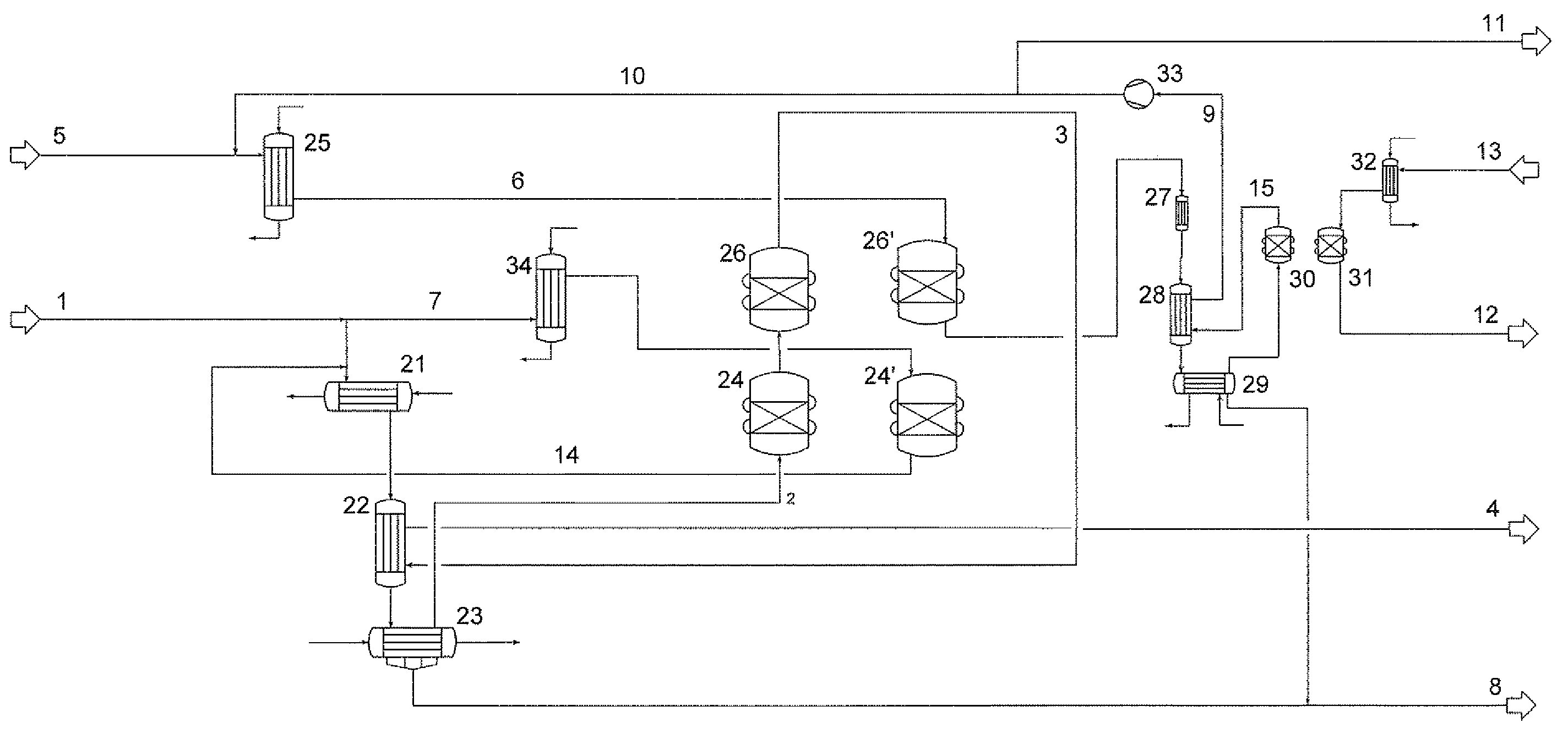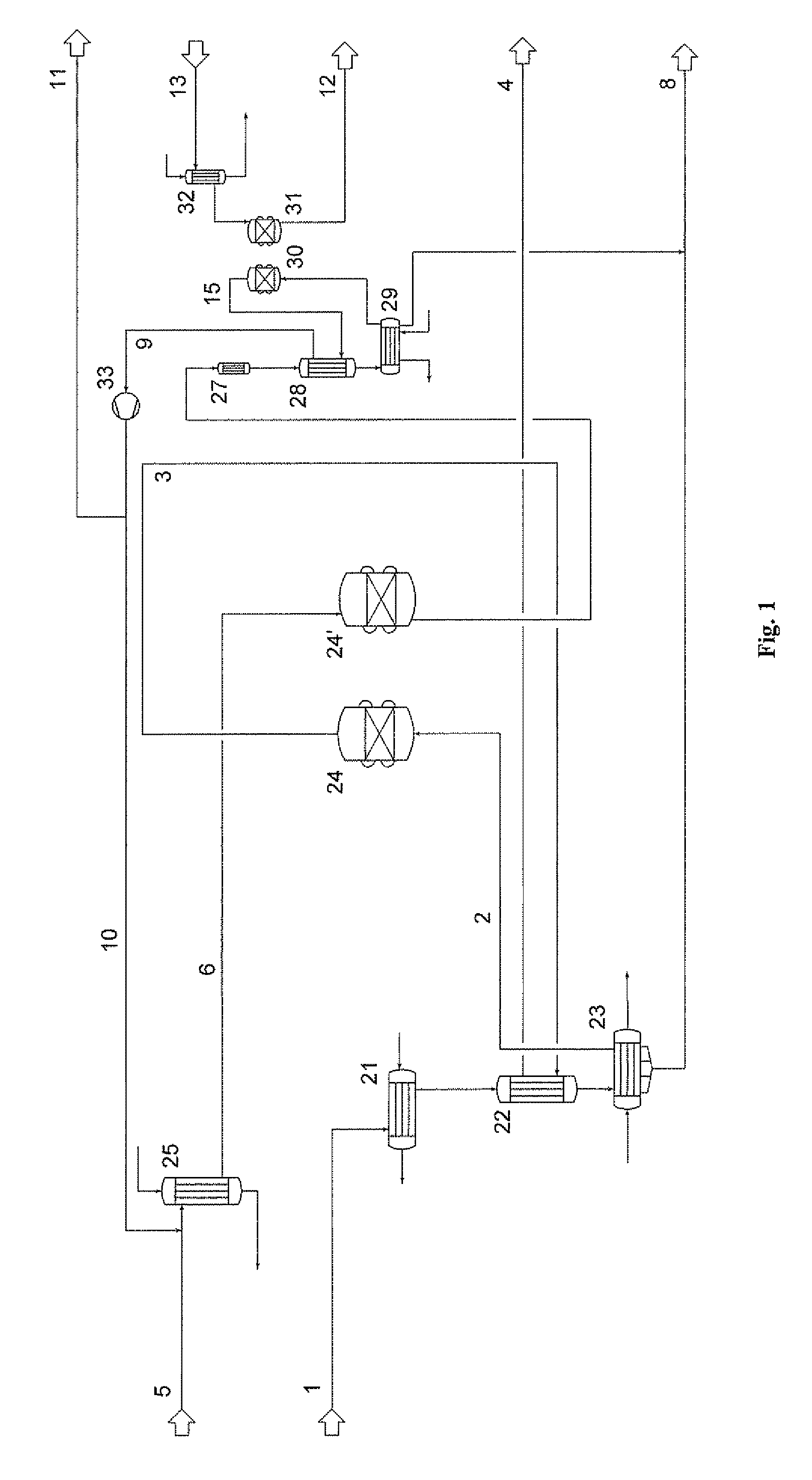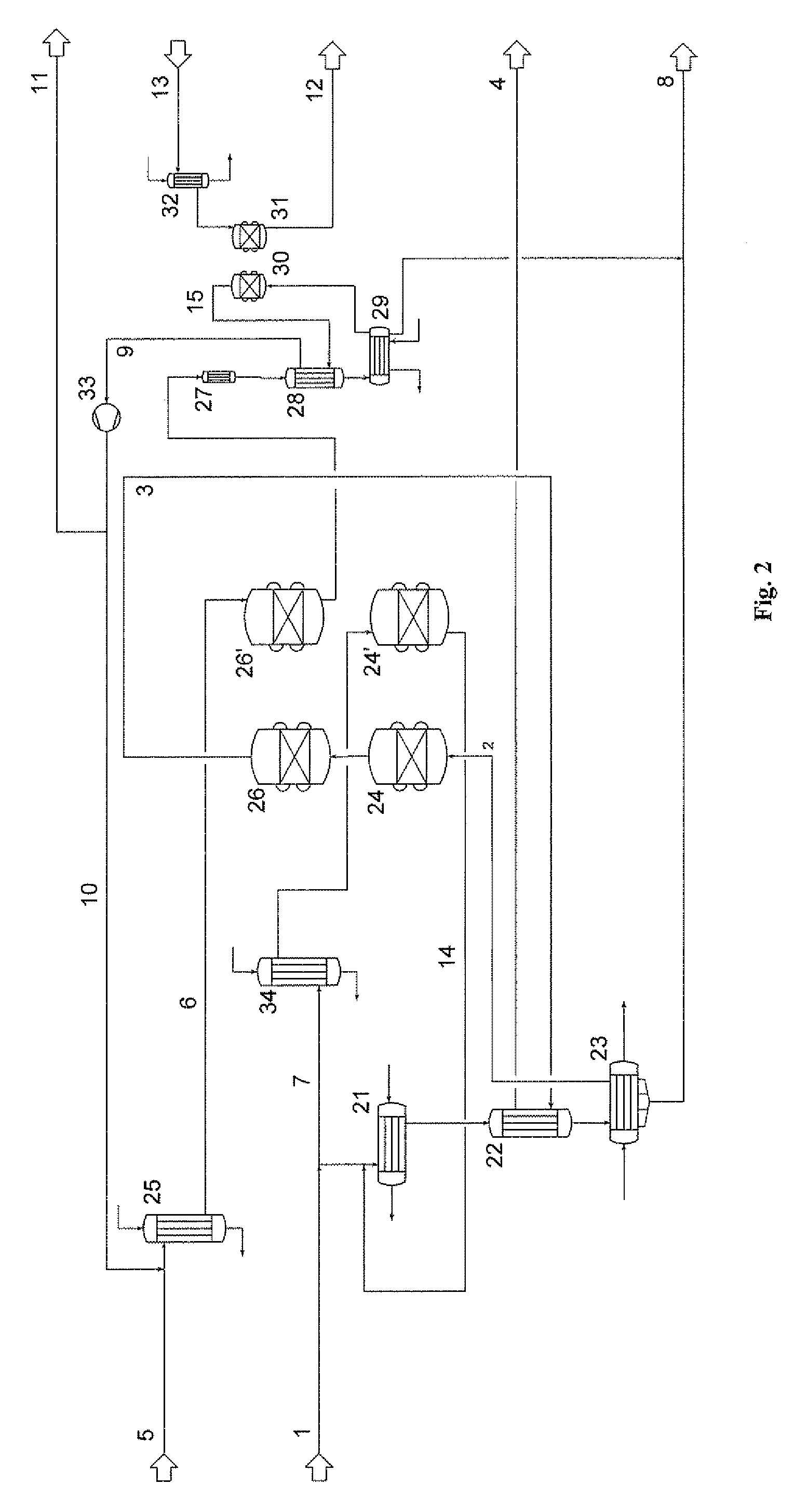Regenerative adsorption processes for removing organic components from gas streams
a technology of organic components and adsorption processes, which is applied in the direction of vapor condensation, filtration separation, lighting and heating apparatus, etc., can solve the problems of energy disadvantage, thermal or reduced pressure regeneration, and the interruption of the production process and the hcl purification process, so as to reduce the consumption of inert gas, reduce the use of expensive inert gas, and improve the effect of adsorption efficiency
- Summary
- Abstract
- Description
- Claims
- Application Information
AI Technical Summary
Benefits of technology
Problems solved by technology
Method used
Image
Examples
example 1
[0062]Referring to FIG. 1, a process in accordance with an embodiment of the present invention is depicted, which provides high purity of the regenerating gas, and hence a high degree of regeneration of the adsorber, while at the same time, the amount of inert gas consumed is minimal.
[0063]As is shown in FIG. 1, the regenerating gas stream is guided in a circuit in the process according to the invention, and the amount of inert gas consumed is thus minimized.
[0064]An initial crude gas stream 1 is precooled in a cooler 21 and passed through the recuperator 22 to provide a crude gas stream. In this example, the initial crude gas stream comprised a hydrogen chloride gas from a TDI production. Organic impurities such as chlorobenzene, hexachlorobenzene, and / or orthodichlorobenzene are condensed in the condenser 23 and discharged as stream 8.
[0065]The prepurified crude gas 2 is passed over an adsorber bed 24 of activated carbon, and the purified gas stream 3 of hydrogen chloride is passe...
example 2
[0072]Referring to FIG. 2, an additional embodiment of a process according to the present invention for making a saving in terms of the inert gas used for the regeneration is depicted and includes using heated process gas for the partial regeneration of the adsorbers. This embodiment employs a two-stage, redundant adsorber unit 24, 26 or 24′, 26′.
[0073]In adsorption mode, the crude gas 1 here too passes through the cooling and condensation stages 21, 22 and 23 which have already been described above with reference to FIG. 1, and in which some of the organic components contained in the gas stream are removed. The prepurified crude gas 2 from stage 23 is fed to a two-stage adsorption 24, 26, where some or all of the remaining organic components are separated off.
[0074]The embodiment depicted in FIG. 2 employs a two-stage adsorption because in regeneration operation the first adsorption stage 24′ is only partially regenerated with the heated partial stream 7 of the crude gas, and the r...
PUM
| Property | Measurement | Unit |
|---|---|---|
| temperature | aaaaa | aaaaa |
| temperature | aaaaa | aaaaa |
| temperature | aaaaa | aaaaa |
Abstract
Description
Claims
Application Information
 Login to View More
Login to View More - R&D
- Intellectual Property
- Life Sciences
- Materials
- Tech Scout
- Unparalleled Data Quality
- Higher Quality Content
- 60% Fewer Hallucinations
Browse by: Latest US Patents, China's latest patents, Technical Efficacy Thesaurus, Application Domain, Technology Topic, Popular Technical Reports.
© 2025 PatSnap. All rights reserved.Legal|Privacy policy|Modern Slavery Act Transparency Statement|Sitemap|About US| Contact US: help@patsnap.com



